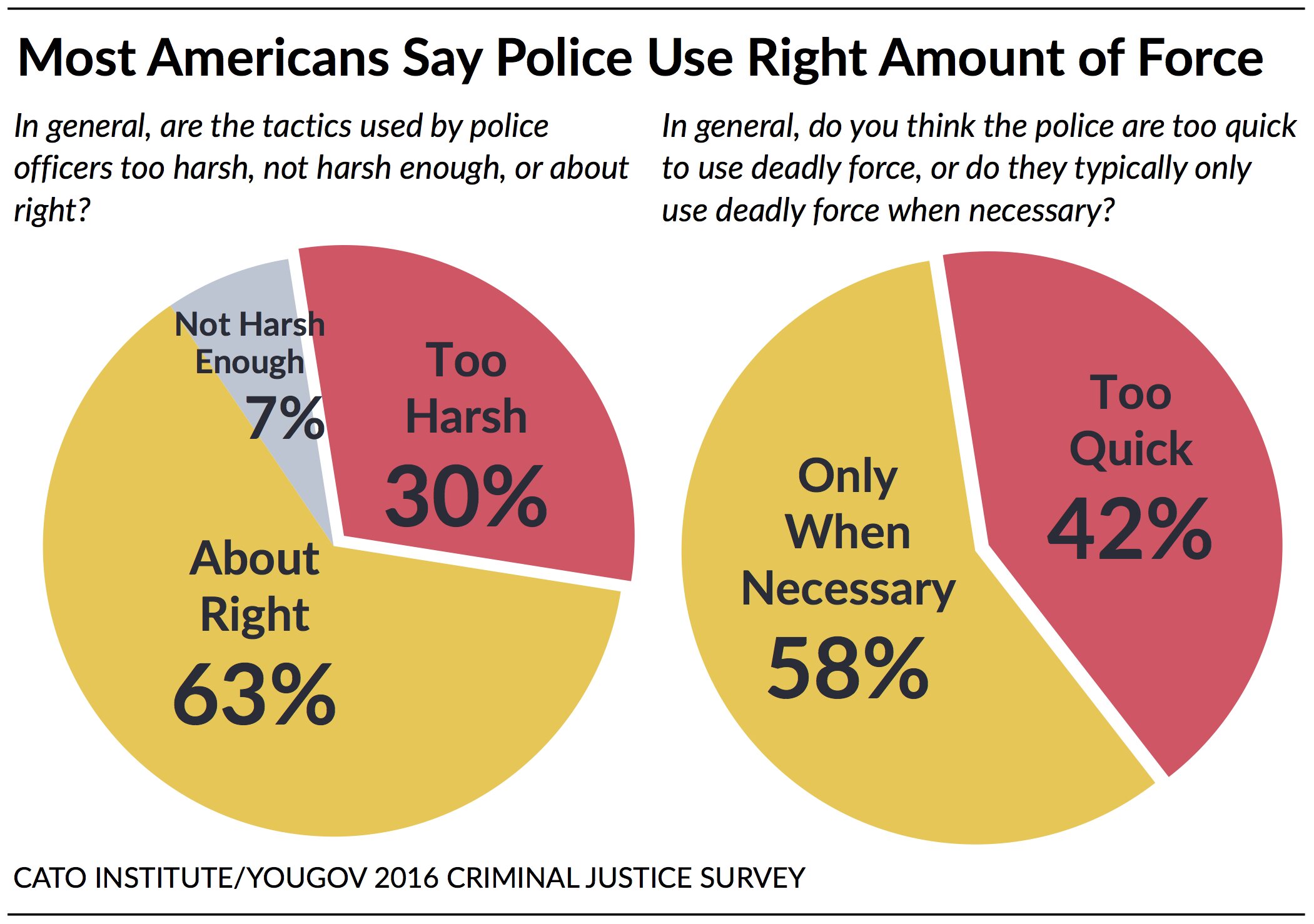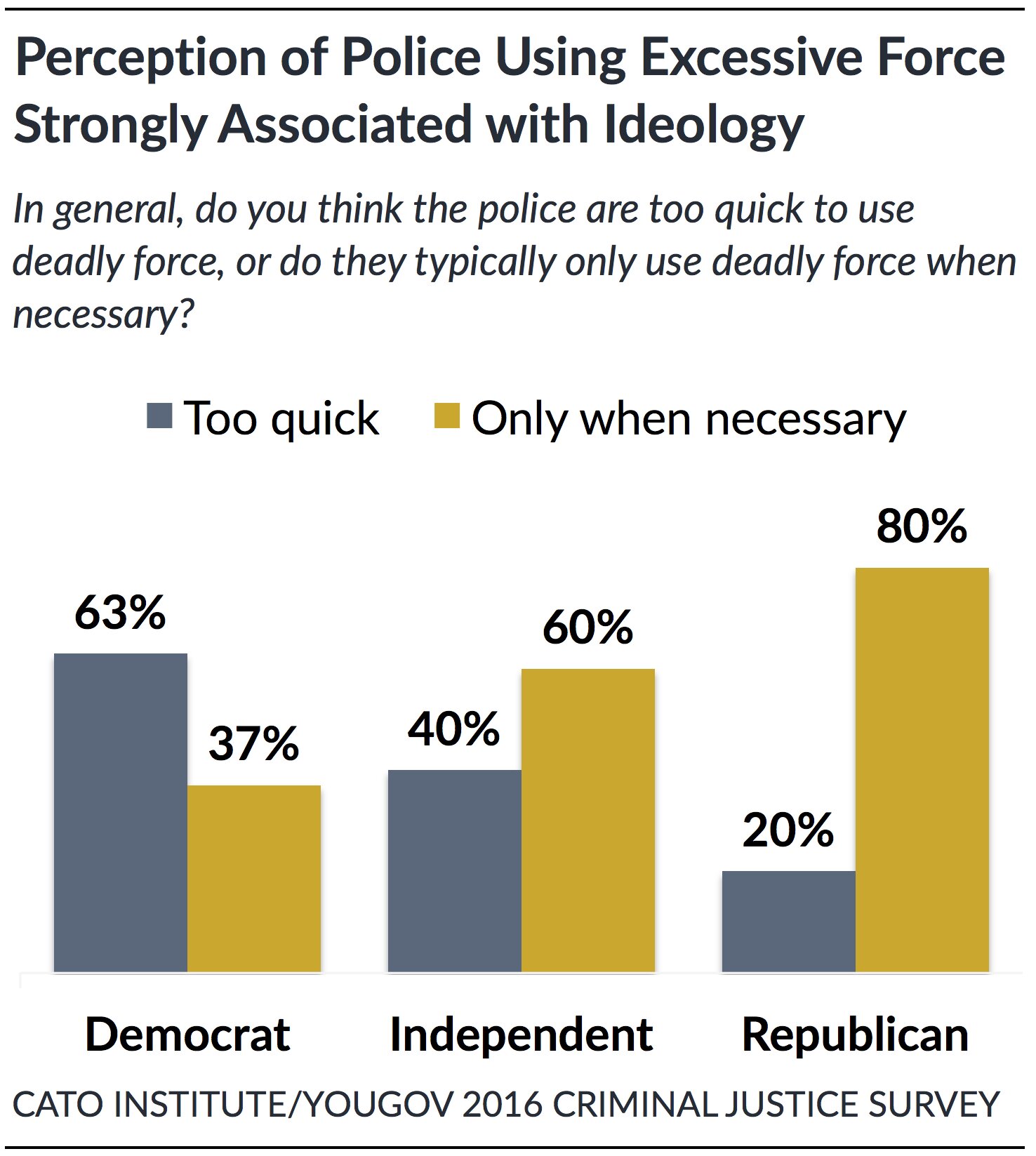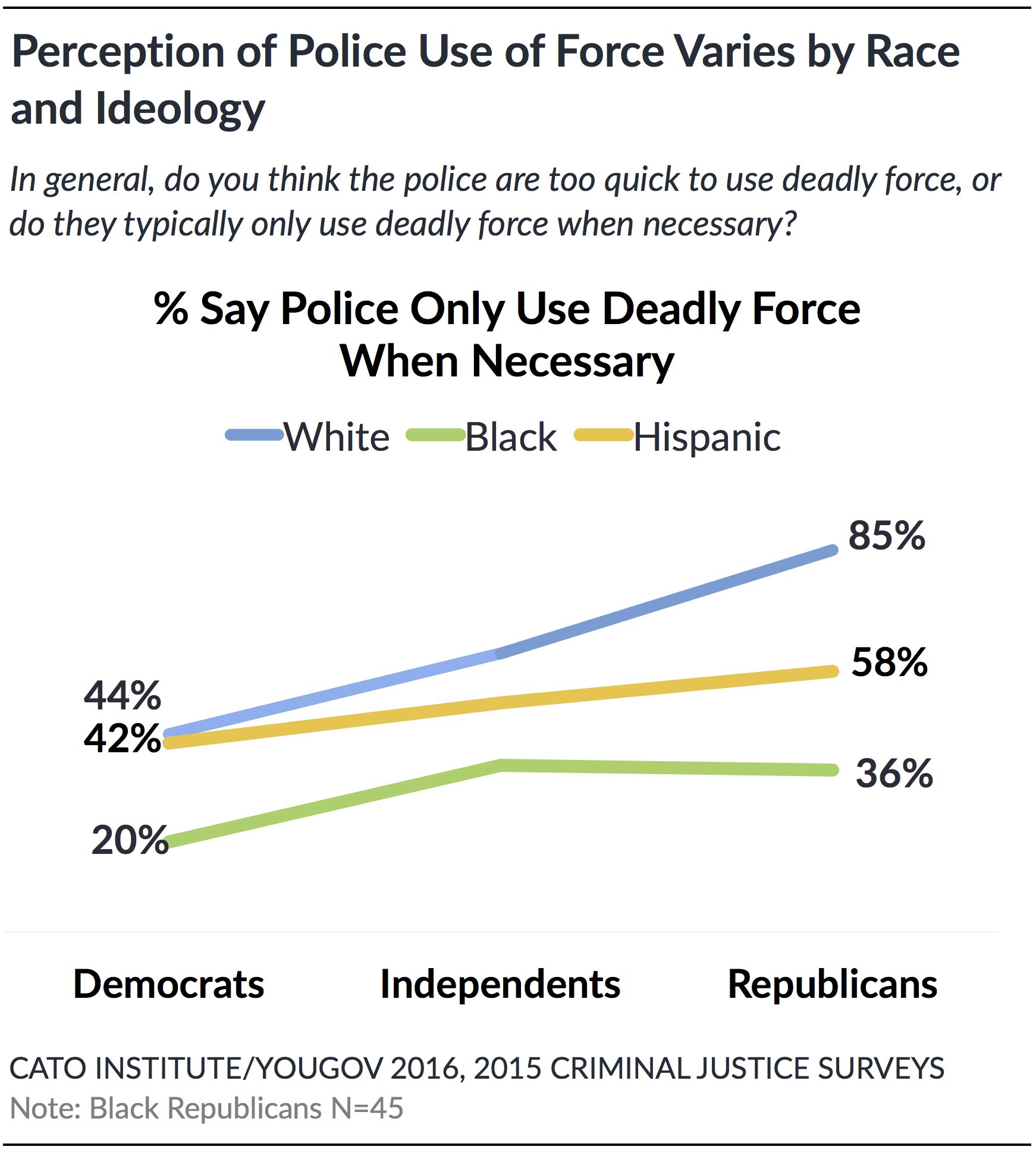Most Americans think the police typically use appropriate force for each situation. Nearly two-thirds (63%) say the "tactics used by police officers" are "about right" while 30% say that they are too harsh and 7% say they aren't harsh enough. Most Americans (58%) also believe that police "only use deadly force when it is necessary" while 42% think that police are "too quick to use deadly force." Thus Americans are slightly more likely to believe police use lethal force unnecessarily than to believe routine police tactics are too harsh. Yet, Americans evaluate police tactics differently across race and ethnicity, income, age, and political ideology.
Six in 10 African Americans say police tactics are "too harsh" and 7 in 10 say police are too quick to resort to deadly force. In contrast, 7 in 10 whites think that police tactics are appropriate and that police only use necessary lethal force. Hispanics are in between: although a majority (54%) say police often unnecessarily resort to lethal force, a majority (58%) also say routine police tactics are reasonable.
Millennials are about 20 points more likely than seniors to say police are too quick to use deadly force (52% vs. 29%) and to think police tactics are too harsh (38% vs. 16%). White millennials are largely driving this shift: white millennials are 23 points more likely than white seniors to believe the police are too quick to use lethal force (47% vs. 24%). However, Hispanic and black millennials are about as likely as Hispanic and black seniors to believe police too often resort to excessive force.
Households making less than $30,000 a year are also about 11-14 points more likely than those making more than $60,000 a year to believe that police too easily resort to lethal force (52% vs. 38%) and that police use harsh tactics (36% vs. 25%). Whites are primarily driving this shift by age and income, as African Americans are no less likely to perceive harsh tactics with increasing age and income.
Partisans also disagree. Nearly two-thirds (63%) of Democrats say police are too quick to use lethal force while 80% of Republicans say police only use it when necessary. Democrats are also nearly four times as likely as Republicans to say police tactics are too harsh (40% vs. 11%).
Again, race matters more than partisanship in perceptions of police use of force. White Republicans are 41 points more likely than white Democrats to say police only use necessary deadly force (85% vs. 44%).53 However, black Republicans (36%) are only 16 points more likely than black Democrats (20%) to agree. In a similar fashion, Hispanic Republicans are only 16 points more likely than Hispanic Democrats to believe police only use necessary force. (58% vs. 42%).
This suggests that political ideology may affect evaluations of police use of force, though primarily for whites. This is a familiar pattern found in earlier analyses. White Republicans are far more likely than white Democrats to have a more positive opinion of the police; however, black Republicans do not differ much from black Democrats in their evaluations of police action.
Americans who score high on the Respect for Authority Index (RAI) are significantly more likely than those who score low to believe that police tactics are about right (79% vs. 39%) and to say that police only use necessary lethal force (69% vs. 41%). 54 (See Appendix E for RAI details.)
Evaluations of police use of force strongly correlate with favorability toward the police. Eight in 10 have a favorable opinion of the police among those who believe officers use appropriate force. Among those who believe police use excessive force, only four in 10 agree.
Notes:
53 Data for evaluations of police use of force by race/ethnicity and partisanship come from the combined June 2016 and November 2015 national surveys (N=4000), which offer greater precision and smaller margins of error for subgroups. (Unweighted: Black Republicans=45, Hispanic Republicans=165, White Republicans=1193, Black Democrats=630, Hispanic Democrats=409, White Democrats=634.)
54 The Respect for Authority Index (RAI) is a composite scale based on averaging responses to three questions measuring people's general respect for authority, without asking explicitly about police authority. See Appendix E for question wording and further details. High Respect for Authority (RAI) scores are defined as those in the top quartile, while low RAI scores are defined as those in the bottom quartile.



